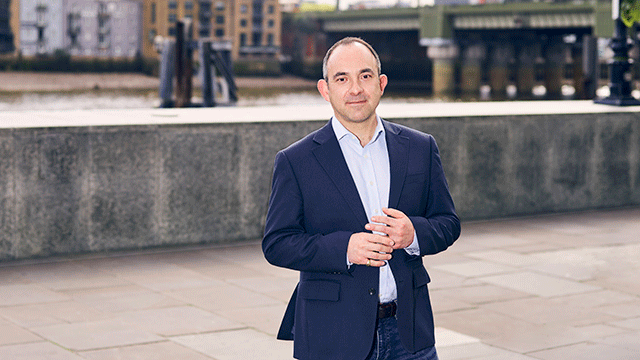Labour party conference: Devolution is coming; without it, regeneration will stall
But can all local authorities be trusted with more power?
It was inevitable that devolution would dominate party conference season. It happened at the Labour Party shindig in Manchester this week and it will be repeated when the Tories gather in Birmingham this weekend.
Whatever the result, the Scottish referendum was always going to cast a long shadow.
Whether it’s answering the West Lothian question or delivering “Devo-Manc”, the precise shape of the UK’s federal future is unclear. But at a private dinner at the Labour conference, attended by some of the UK’s best-known developers and the leaders of some of its biggest local authorities, there was a clear message: without meaningful devolution, regeneration and growth in many parts of the country will fail.
The dinner was the latest Big Think debate staged by Mishcon de Reya and consultancy Central, and the first supported by Estates Gazette. Peter John, Julian Bell and Claire Kober – leaders of the London boroughs of Southwark, Ealing and Haringey respectively – were among the guests, as were Exemplar’s Dan van Gelder, Urban Splash’s Tom Bloxham, Cathedral Group’s Martyn Evans and Essential Living’s Darryl Flay and Martin Bellinger.
There was consensus: after all, the most forward-looking local authorities and developers have long been on the same page. Pro-growth, pro-delivery and willing to work in partnership, for them the old adversarial ways of operating are largely a thing of the past. It’s no longer about party politics, either: there are pro-growth Labour councils just as there are Conservative councils that remain suspicious of developer motives.
But if local government is ?getting its act together, the ?same is not necessarily true of Westminster and Whitehall.
For former Labour minister Lord Adonis, also at the dinner, the need for “massive investment” only strengthens the case for devolution.
“London needs not to be ?lobbying for more investment, but to take care of its own destiny,” he said. “In part, it needs to set the proceeds of future projected growth against its infrastructure needs. If given the means to do so, London can more than pay for it. ”
The only way London’s acute housing needs can be solved is to give boroughs more control, said Peter John. “It’s absolutely bonkers we have to go cap-in-hand to the Treasury.”
London may believe its case for greater autonomy is strong, but it is not just the capital that believes greater autonomy will accelerate growth.
For Nottingham city council’s cabinet member for jobs and growth, Nick McDonald, there is only one way of rebalancing the national economy: “It’s very simple: devolution.”
But if power is devolved to “good” local authorities to constructive effect, what happens when it is devolved to councils that appear more protective than progressive?
In Hammersmith and Fulham, a change of administration has added uncertainty to CapCo’s Earl’s Court project. And you won’t have to speak to too many developers to hear the same handful of local authorities named as all but impossible to deal with. And not just in north London, either.
So what happens when those seen as laggards get greater powers?
According to John, it’s often a question of attitude. “The difference between good local government leadership and bad local government leadership is optimism,” he said over dinner. “It’s not just political stability, you need a local authority with a vision.” For Tom Bloxham, it is about leadership. Central’s Pat Brown said trust was paramount, while for Ian Simpson, one of Manchester’s best-known architects, dialogue with the private sector and access to local authority leaders is a must.
Haringey’s Claire Kober, seen as a leader doing an impressive job in a challenging borough, called for a new mindset. “We are about to walk into the self-financing era of local government,” she said. “It’s not about managing decline. It’s not about reducing budgets. If we think it’s about that, we’ll fail. It’s about how we transform.”
But Dan van Gelder, chair of the Westminster Property Association, urged caution when considering how far devolution should go. “It does concern me,” he said. “There are some wonderful local authorities and there are some wonderful political parties. Ken Livingstone was a wonderful London mayor, as in many ways Boris has been. You only have to see how many cranes are up in Southwark to see it’s been a wonderful local authority for growth.
“But that contrasts with other local authorities. So it is slightly concerning if too many powers get devolved.”
Once the thorny issue of how to devolve power is resolved, a new problem will surface. How do you ensure those with newly invested power will use it wisely?
damian.wild@estatesgazette.com











